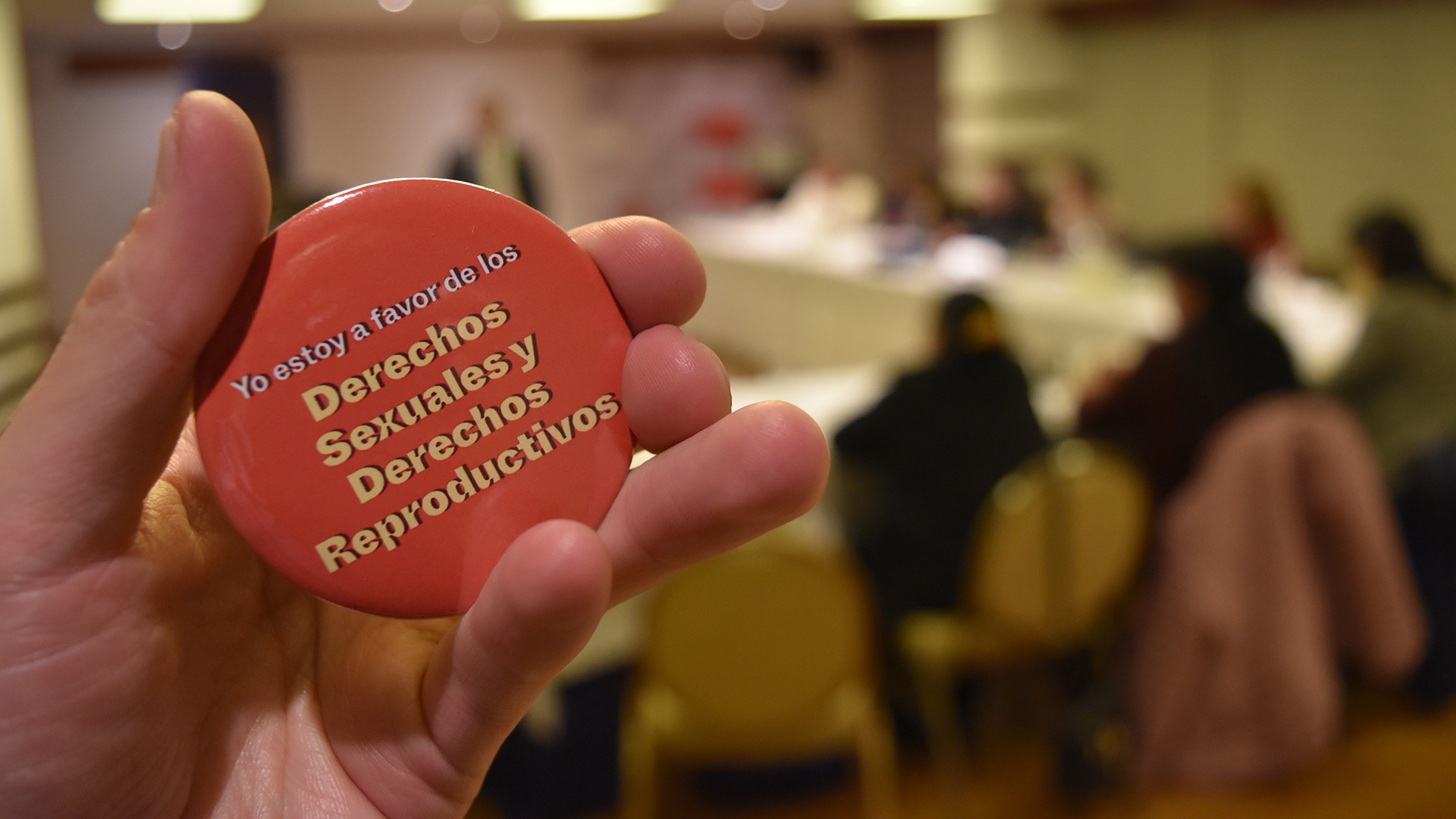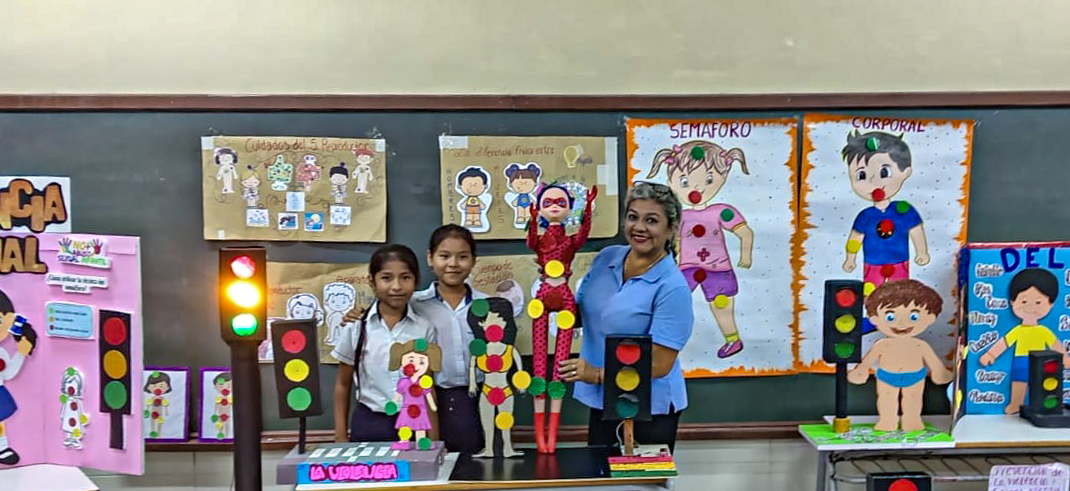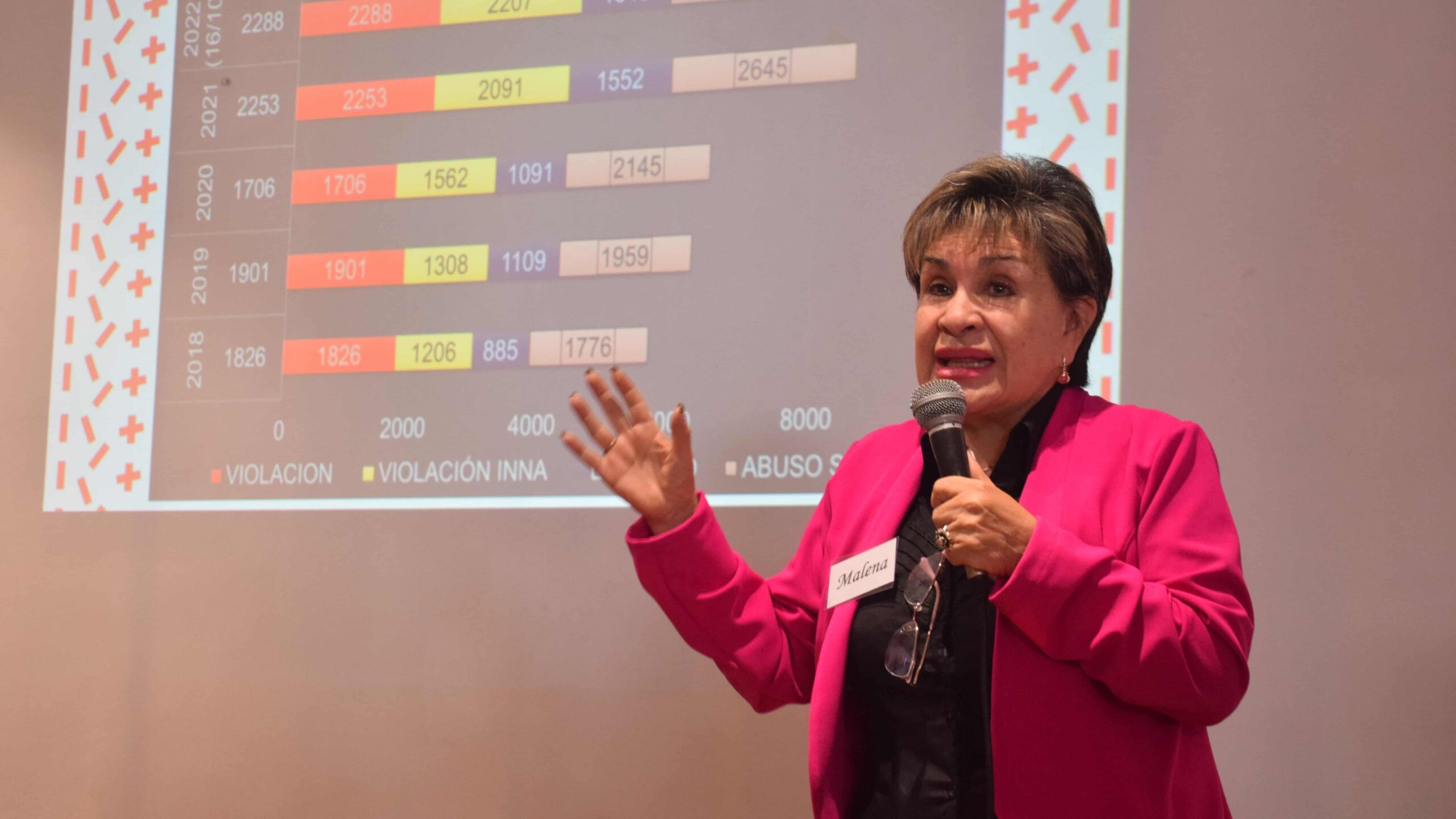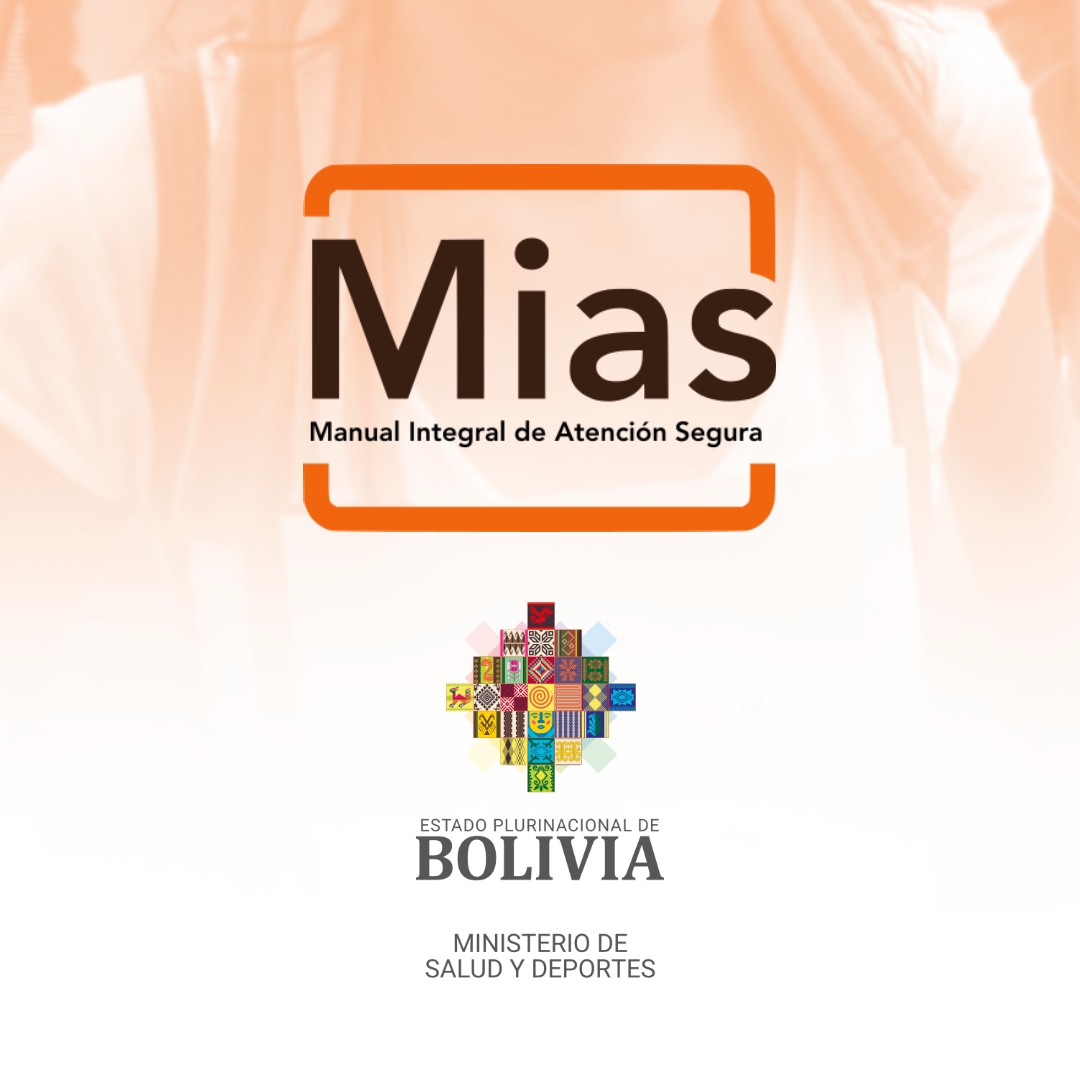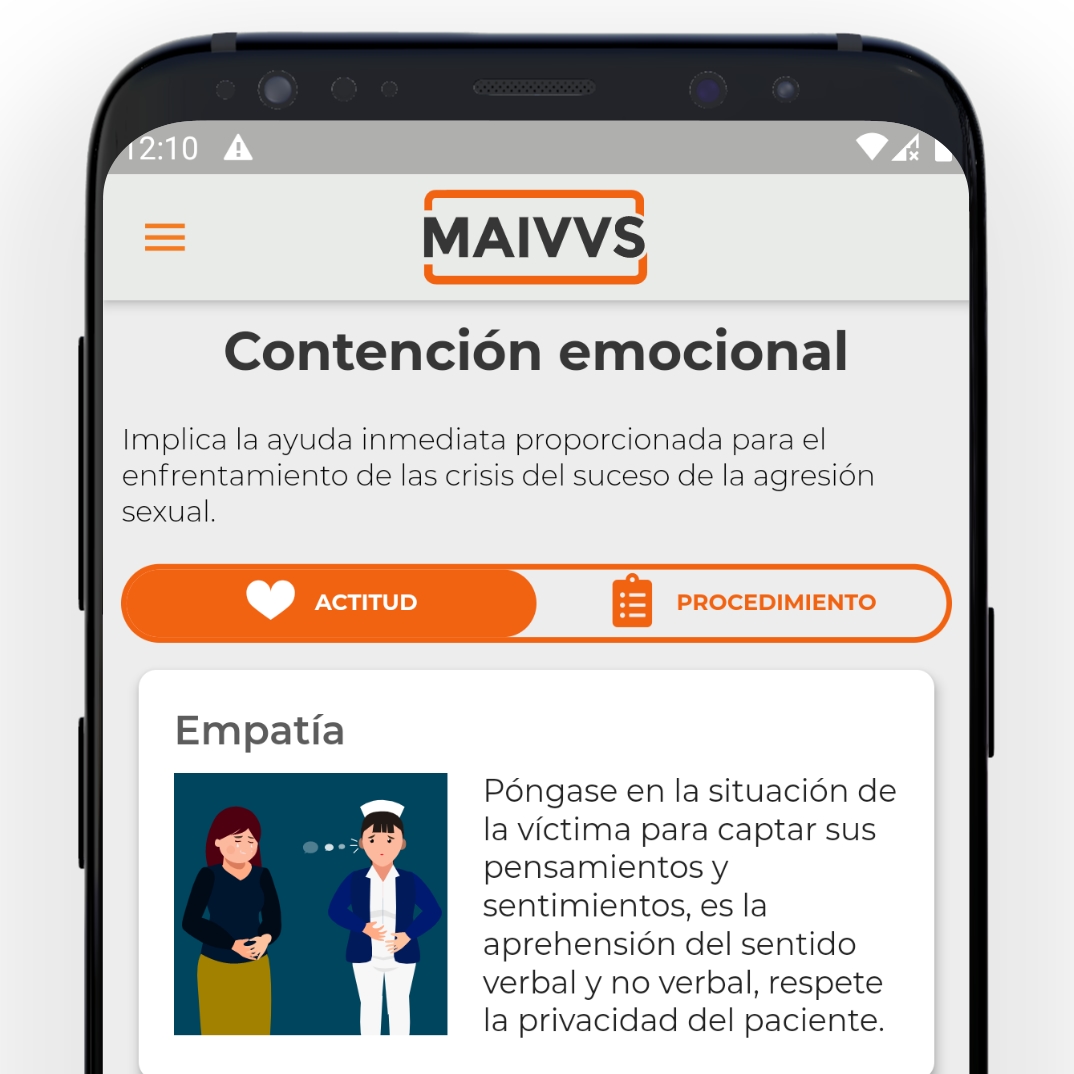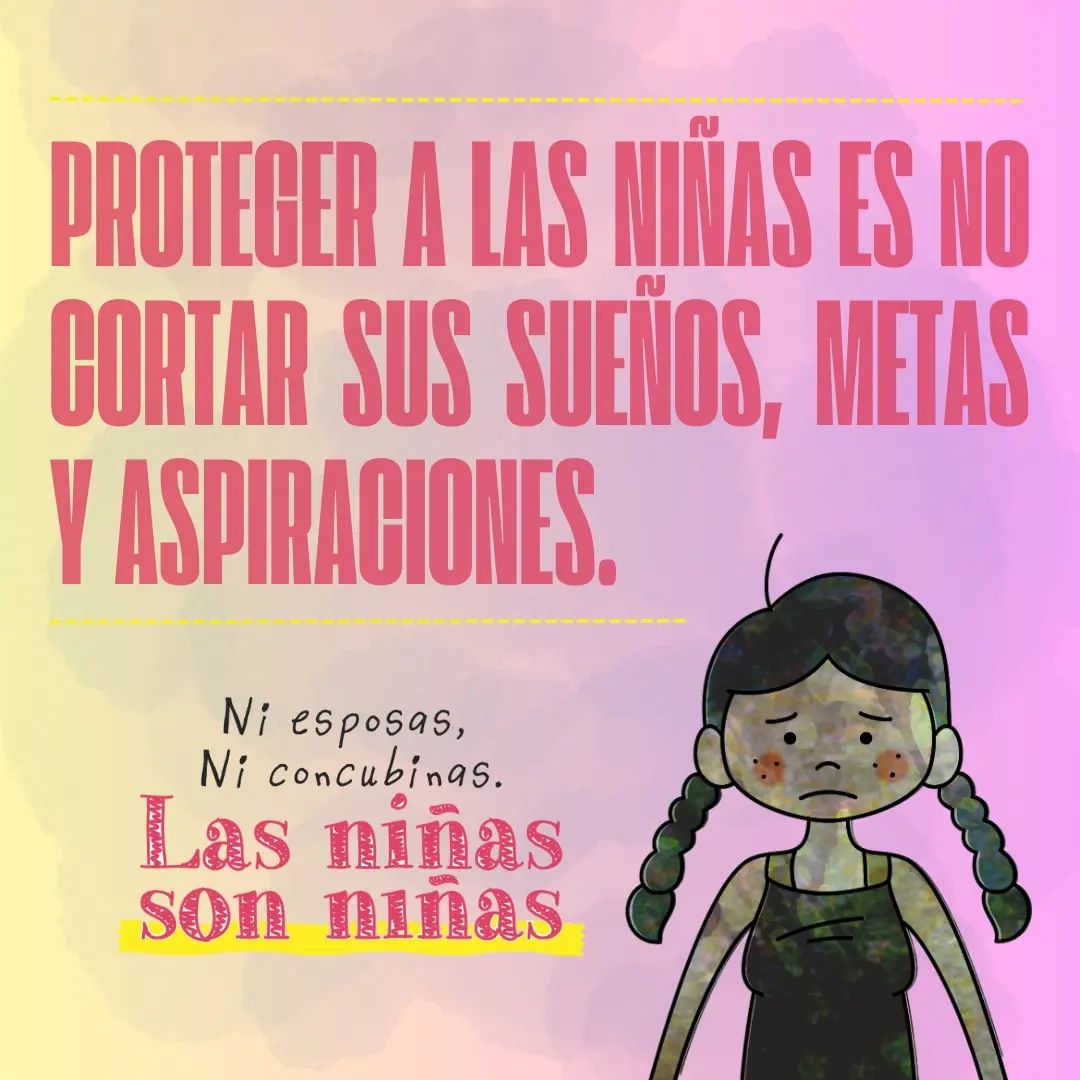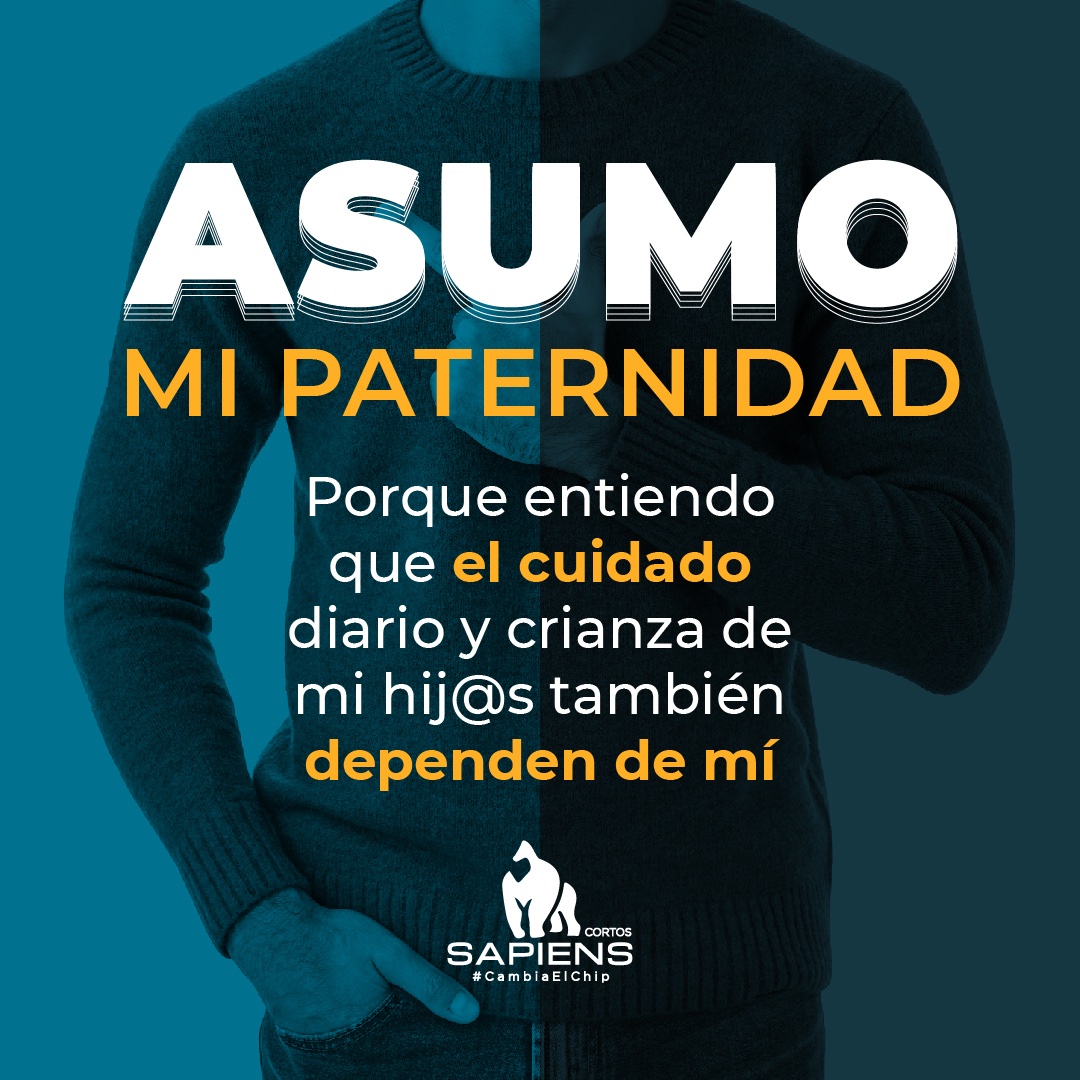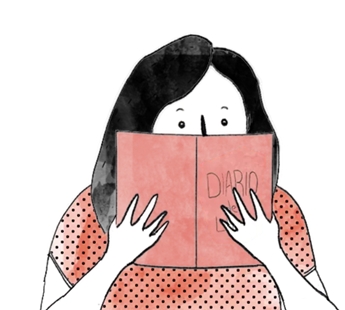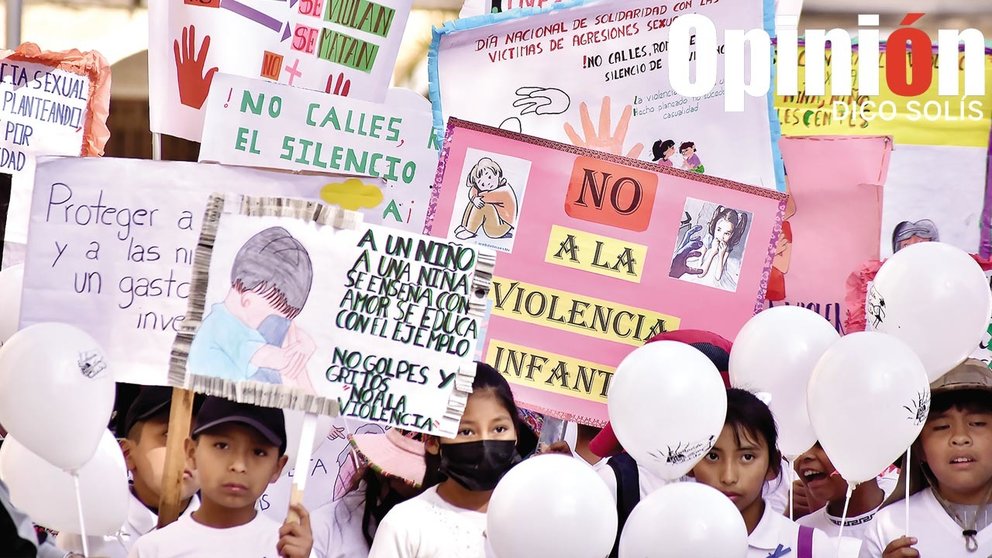The fact that a child or adolescent cannot sleep well, does not want to greet certain people, including family members, isolation, self-injurious behaviors, aggressiveness, poor academic performance and others may be behaviors that derive from sexual violence.
Crimes against sexual freedom refer to rape (when there is vaginal, anal or oral penetration and/or introduction of objects for libidinous purposes), statutory rape (seduction or manipulation of an adolescent between 14 and 18 years of age to have sexual relations), sexual abuse (bodily contact without penetration, such as kissing, caressing, hugging, etc., which implies sexual satisfaction for the aggressor), sexual exploitation.
This Friday was developed the Walk for the National Day of Solidarity with the Victims of Sexual Assault and against Sexual Violence against Children and Adolescents. Authorities and students of educational units participated, after a concentration in the Plaza 14 de Septiembre.
Brisa de Angulo, victim of sexual violence and founder of Fundación Una Brisa de Esperanza (FUBE), praised the involvement of authorities and institutions that defend children and adolescents.
“This is an issue where people want to hide duck their heads pretend it’s not happening, but it’s the brave people who are willing to raise their heads and say ‘I want to make change.’”
The director of Gender, Generational and Family of the Mayor’s Office of Cochabamba, Tatiana Herrera, said that this is one of the most complicated crimes, which destroys people’s lives.
“Unfortunately, more than 98% of almost all cases of aggressors are within our home. There is a very high percentage that are the stepparents themselves, even the biological parents. That is why we have to be alert”.
SYMPTOMS – ALERTS Herrera said that some behaviors can signal that something is wrong with a child or adolescent.
“It’s when our children tell us not to force them to greet aunts, uncles, friends or even their own parents. There are abrupt mood swings, when our children can’t sleep well, when our children in the educational unit isolate themselves or definitely start to get too violent or aggressive with other classmates or with teachers. That’s when we have to react; when they don’t want to eat or when they suddenly start having attitudes they never had before. That’s when we have to open our eyes.
It is also important to be aware of alerts such as nightmares, loss of sphincter control, self-injurious or suicidal behaviors, hyperactivity, decreased academic performance, generalized fear, guilt and shame, anxiety, depression, low self-esteem and feelings of stigmatization, rejection of one’s own body, and deficits in social skills, among others.
THE NUMBERS In Bolivia, according to FUBE, 110 cases of violence against children and adolescents are registered every day. In addition, one out of every three girls is a victim of sexual violence before reaching 18 years of age; and one out of every five boys, as well.
According to the Ombudsman’s statement regarding the “National Day of Solidarity with the Victims of Sexual Assault and against Sexual Violence against Children and Adolescents”, the data on sexual violence against children and adolescents (NNA) issued in the last year, call the country to remain in a national alert due to its marked increase.
In the period from January 1 to June 24 of this year, the Public Prosecutor’s Office registered 24,126 cases of gender-based violence, marking an increase of almost 600 more cases compared to 2023 in the same period, when 23,548 cases were reported.
The most reported crimes of sexual violence are sexual abuse (1,725 cases), rape (1,466), rape of a child or adolescent (1,274) and statutory rape (861). Comparing the 2023 administration with the current administration, there is an increase of 10.56% in rape, 6.97% in rape of a child or adolescent, 2.26% in statutory rape and 1.95% in sexual abuse.
The Ombudsman stated that this worrying context calls upon the State, at its different levels, to strengthen public policies to prevent the repetition of these acts of violence with a focus on children’s rights, adopting effective prevention measures, such as the implementation of the Comprehensive Program for the Prevention of Sexual Violence against Children and Adolescents; the elimination of the culture of silence and any form of tolerance towards this scourge; and the sensitization of the population to banish ideas that consider children as objects of rights and of special protection by the State, the family and the community in general.
He added that a greater allocation of public resources, the specialization (training) of justice and protection system operators must be guaranteed to strengthen the fight against sexual violence, as well as the creation of support programs that address the needs of victims.
The Director of Gender, Generational and Family of the Mayor’s Office of Cochabamba explained that although the institution promotes the denunciation, they also have therapeutic services of psychological support and counseling to prevent these circumstances of vulnerability.
These types of crimes can be reported to the Public Prosecutor’s Office, the Prosecutor’s Office, the Special Force for the Fight against Violence (FELCV) and the Special Force for the Fight against Crime (FELCC). Where these instances do not exist, the complaint can be made to the competent authority in communities (such as the indigenous native peasant authorities). A copy of the complaint should be requested.
Victims can also turn to institutions to collaborate and promote the complaint, such as the Municipal Integral Legal Services (SLIM); the Ombudsman’s Offices for Children and Adolescents (DNA), in the case of children under 18 years of age; where there are Integrated Plural Justice Services (Sijplu).
Herrera said that victims can approach any Defensoría of their subalcaldía or go to the central offices, on Venezuela Street between Antezana and 16 de Julio.
“Unfortunately, we have a lot of complaints that sometimes don’t get to the port that we would like them to get to.”
CIES recommends that if a person is a victim of sexual violence, he/she should go to a health service to be treated.
“You will receive emergency contraception and thus avoid pregnancy resulting from the crimes of rape, incest, statutory rape or abduction. You will receive treatment for the prevention of sexually transmitted infections, psychological support.”
SEXUAL VIOLENCE According to the Network against Sexual Violence against Children and Adolescents, sexual violence against children and adolescents is a crime against sexual freedom through different forms of violence, such as from an adult to an infant, child or adolescent or between people of the same age, with or without physical contact, using seduction, blackmail, humiliation, bribes, threats, intimidation, psychological manipulation and physical force to degrade and control.
Any of the following acts by an adult to a child or adolescent are considered sexual assaults: fondling the genitals of a child or adolescent; persuading a child or adolescent to fondle the genitals; touching the genitals of a child or adolescent; showing pornography to a child or adolescent.
The Director of Gender, Generational and Family of the Mayor’s Office of Cochabamba stated that many cases of sexual violence were reported by teachers of educational units, who identified that children and adolescents suffered aggressions in their own homes.
National regulations on the subject are being promoted
National legislation is being promoted with regard to crimes related to sexual aggressions against children and adolescents.
The president of the Human Rights Commission of the Chamber of Deputies, Olivia Guachalla, described that legislative proposals arose from a double infanticide in Bolivia and a proposal from the Chamber of Senators. Three projects were merged and the project of Law 010 on the Non-Applicability of Statutory Limitations to Sexual Crimes against Children and Adolescents was consolidated.
“I believe that, today more than ever, the congressmen, the assembly members have to fulfill a fundamental task. There cannot continue to be so much sexual violence against our children and adolescents; and the worst thing is that the family link is the aggressor link, it is not an external one, it is no longer in the streets; it is at home”.
This law has already been approved in the Human Rights Commission of the Chamber of Deputies. Guachalla expects this law to be approved in the plenary of the Plurinational Legislative Assembly (ALD) in the next few days.
On the other hand, the president of the Special Commission for Women, Children and Adolescents of the Municipal Council of Cochabamba, Marilyn Rivera, informed that Law 1494/2024 was approved, which declares August 9 as Solidarity and Awareness Day for the Fight against Sexual Violence against Children and Adolescents.
“What we intend with this regulation is that every year all public and private institutions, authorities, civil society, at least on this date, we can raise our voices to make all those who are victims feel that they are not alone.”

